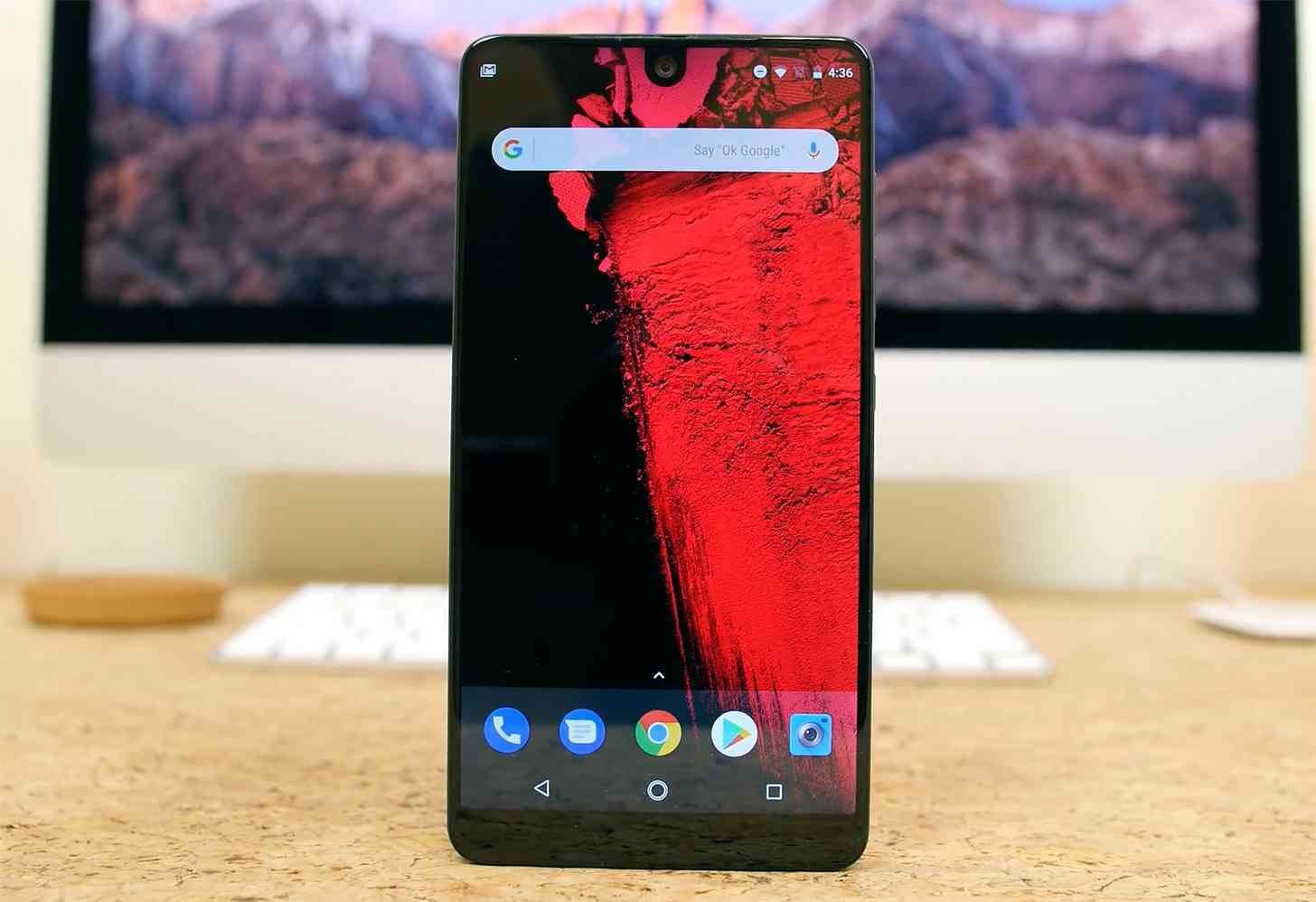
The Essential Phone is an interesting device. It's a handset that's designed to be the hub for a lot of different products, especially through its modular design. Snapping on accessories is meant to be a breeze, and, eventually, the idea is that the smartphone will be the central part of an ever expanding ecosystem of Essential (-branded) devices.
That hasn't really happened just yet. We've got the Essential Phone --with three new Spring Collection colors!-- and if you take a quick look at the company's online storefront, there isn't a lot to be excited about. There is the 360-degree camera, which attaches via the modular design, and . . . wireless charging support, even through the "Click Connector". That's not even available yet, so there's just one option right now.
If this were Apple we were talking about, or Samsung, or HTC, or even OnePlus at this point, there might be something to build upon here. But the truth of the matter is that, technically speaking, Essential is a startup company that's just trying to get up off the ground. Yes, the company is worth a ridiculous amount of money, and there are some very talented people working there --including Andy Rubin-- but that can't change the reality of the situation.
Essential is a new company that's trying to make a name for itself in a very, very competitive market.
The Essential Phone didn't seem to make much of a wave in 2017, either. The latest report from research firm IDC shows that Essential sold 88,000 devices since launch -- not a great number. One of the recurring elements I saw when that report came out was that Essential was trying to not only jump into the smartphone market, but jump into the market right at the high-end level.
Basically, Essential came out swinging, but it was trying to hit targets like Apple and Samsung. I don't think anyone thought that would actually work out, and, well, that looks to be the case. Essential wants to sell more phones, and so it will be interesting to see how the Essential Phone's successor attempts that.
The trouble for me comes from the fact that if the Essential Phone, which is a great flagship handset, couldn't make a dent, why would the Essential Phone 2? Samsung isn't going to stop making phones. Neither is Apple, or LG, or HTC, or even Nokia (by way of HMD Global). The competition is only going to get more competitive, and the high-end market isn't going to somehow free up space anytime soon.
So, I thought about Essential changing its tactics. Maybe the company goes for a mid-range device this time around, and it gets even more aggressive with the price tag. Essential could go after the likes of OnePlus, and maybe Andy Rubin and crew have a shot there.
Then again, the mid-range market is even more saturated, and Samsung, HTC, Nokia, and other major companies have a foot in there, too. But then, maybe Essential can try to start over, launch a mid-range smartphone this year, and then work upwards. Kind of like how OnePlus has slowly increased its flagship smartphone's features, but also gradually given the price tag an uptick, too.
None of that would work, though, probably. Because that would be honestly pretty crazy if Essential suddenly changed its game plan and opted out of launching a high-end smartphone as a successor to a high-end smartphone. Plus, the backlash there would be intense. The safe bet is that Essential is going to offer another high-end flagship device this year, and it will be up to features, marketing, and more to try and propel Essential to the top of the heap.
Now that we've seen where Essential stands in the market, even if it's just a brief look via a research note, it's going to make whatever happens next pretty exciting. I'd love it if Essential became a major player in the market. And it will be interesting to see if they can achieve that. And, if they do, how they get there.
What do you think? What should Essential do to shake things up this year and get even more people to buy the Essential Phone successor? Let me know!